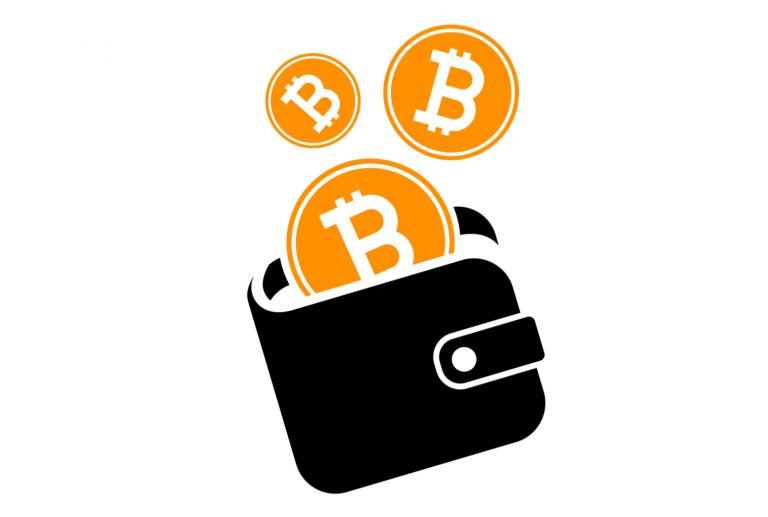
2025-3-24 23:00 |
The following is a guest post from Georgi Koreli, CEO & Co-Founder of Hinkal.
For years, crypto wallets have been as clear as glass, showing every single transaction, balance, and interaction on an open ledger. While this was once seen as a foundational asset of blockchain tech, many now see it as a critical weakness. According to State Street Global Advisors, 62% of institutional investors prefer indirect or regulated exposure to crypto, citing apprehensions about exposing their every move on a public ledger. In an ecosystem that aspires to replace or rival TradFi, the inability to conduct business confidentially is a serious liability.
The recent Bybit hack, which cost the platform $1.5 billion, was allegedly caused by a wallet compromise – reinforcing the danger of hyper-transparency. Hackers can hone in on high-value accounts, track their activity, and launch precisely targeted attacks. Experts such as Vitalik Buterin and EY’s Paul Brody have emphasized that genuine adoption hinges on the incorporation of privacy instead of sole reliance on open ledgers. Despite these warnings, the crypto world still largely adheres to a model that makes participants vulnerable – all the way from small investors to major entities.
Fatal Flaws of Public WalletsA closer look at public wallets exposes multiple vulnerabilities. Surveillance is the first. Every token exchange, NFT mint, or simple balance transfer sits plainly on-chain, and given enough data, observers can piece together a wallet’s balance and patterns around spending, investment, and peer connections. While concerning for private users, this is an absolute deal-breaker for institutions needing to shield competitive information: no, thank you.
Additionally, security threats multiply when every wallet’s holdings are common knowledge. Hackers can spot large caches of capital and mount sophisticated phishing or social engineering tactics. The Bybit incident is a striking example of what can happen when malicious entities lock onto a prominent address. Once funds are laundered away through mixers or other means, recovery becomes nearly impossible. For institutions managing large treasuries or executing strategic trades, this visibility isn’t just a risk — it’s a structural flaw that exposes them to front-running and extortion.
Finally, regulatory and competitive hurdles arise from the idea that total openness automatically satisfies oversight. Traditional compliance relies on regulated gateways, risk assessments, and audited disclosures – not the broad, perpetual spotlight that public blockchains offer. Businesses need to keep information confidential when negotiating deals or sharing financial details with partners. If every transaction is immediately visible to competitors, it undermines any strategic edge. In short, public wallets aren’t just inconvenient; they chip away at the business case for crypto in real-world scenarios.
Private Blockchains: A Mirage of Safety?Some enterprises have turned to private blockchains to solve these transparency problems. Private blockchains limit participation to a closed group, preventing the public from accessing transaction details. However, this goes against the core principles of decentralization. A small consortium can change rules, block transactions, or otherwise govern the system in ways that go against the trustless ethos of crypto.
On top of that, private blockchains often cripple liquidity and composability. One of DeFi’s defining features is how various platforms interoperate – often described as “money Legos.” Splintering off into an isolated private network breaks that ecosystem effect. Moreover, outside developers lose the incentive to build on top of a controlled environment they can’t freely access.
Despite their initial appeal, private chains have the potential to impede collaboration and hinder the innovation that has fueled the growth of public networks. The optimal solution must strike a balance between privacy and the open-source ethos that is characteristic of public blockchains.
Privacy Wallets with ZKThe true path to mainstream adoption lies in privacy wallets that use cryptographic techniques like zk-SNARKs and stealth addresses. Zk-SNARKs (Zero-Knowledge Succinct Non-Interactive Arguments of Knowledge) allow one party to prove a statement (such as validating a transaction) without revealing the specifics of that statement. Instead of broadcasting every token movement, the blockchain only receives confirmation that the transaction follows the rules.
Meanwhile, stealth addresses help keep the sender and recipient’s identities hidden by creating ephemeral, single-use addresses for each transaction. This keeps the public blockchains’ liquidity and composability while protecting private information. Selective disclosure lets users give detailed transaction histories to relevant regulators or auditors without putting it all on a public record. This design resolves the tension between the demands of compliance and the rightful expectation of privacy.
With these features, institutions can trade large token volumes without broadcasting trades to front-runners. Companies can handle corporate expenses and payroll without making sensitive figures public. Individual users, likewise, enjoy the same discretion they’ve long experienced with traditional banking. All the while, the network remains decentralized, accessible, and vibrant.
Balancing Privacy, Compliance, and SecurityCritics sometimes mistake privacy for anarchy, but that is a false equivalence. Conventional banks do not publish personal account data for all to see, but they still follow KYC, AML, and other regulatory frameworks. In a privacy wallet model, authorized agencies – with the proper legal grounds – could be granted decryption privileges, reducing the risk of unchecked crime. The result is a system where user privacy and regulatory compliance coexist.
It’s also important to note that privacy features do not make robust cybersecurity redundant. The Bybit hack showed us the need for multisig wallets, hardware-based key storage, and general best practices for guarding digital assets. Privacy wallets merely reduce the incentive for hackers by concealing which addresses hold large balances, an extra layer of security that works in tandem with other safeguards.
Public Wallets Are Done – A Call for a Confidential FutureTo conclude, public wallets are outmoded in a world where serious enterprises demand confidentiality and everyday users recoil at total transparency. It’s no coincidence that luminaries like Vitalik Buterin and Paul Brody have urged the industry to ramp up privacy measures – mass adoption will not occur while every transaction is exposed to the whims of data miners, hackers, and unscrupulous competitors.
The point is that the entire industry must adapt if we want crypto to eclipse TradFi. Transparency on everything is a relic of the past – it hampers corporate usage, puts personal security at risk, and stifles institutional investment.
Privacy wallets represent a middle ground that retains the core advantages of public blockchains – open access, network effects, seamless interoperability – while correcting their biggest flaw: the lack of confidentiality. Introducing stealth addresses, zk-SNARKs, and selective disclosure paves the way for universal utility. It reduces hack incentives, addresses institutional trepidation, and boosts user autonomy.
So, the conclusion is plain: public wallets no longer fit the trajectory of a rapidly maturing cryptocurrency ecosystem. Embracing privacy-focused wallets is the transition that will make digital assets genuinely viable in a broader financial space. If we want to compete with established financial systems, privacy is the missing piece, and we can’t afford to overlook it.
The post The death of public wallets: Why crypto needs privacy to compete with TradFi appeared first on CryptoSlate.
origin »Bitcoin price in Telegram @btc_price_every_hour
Emerald Crypto (EMD) на Currencies.ru
|
|























